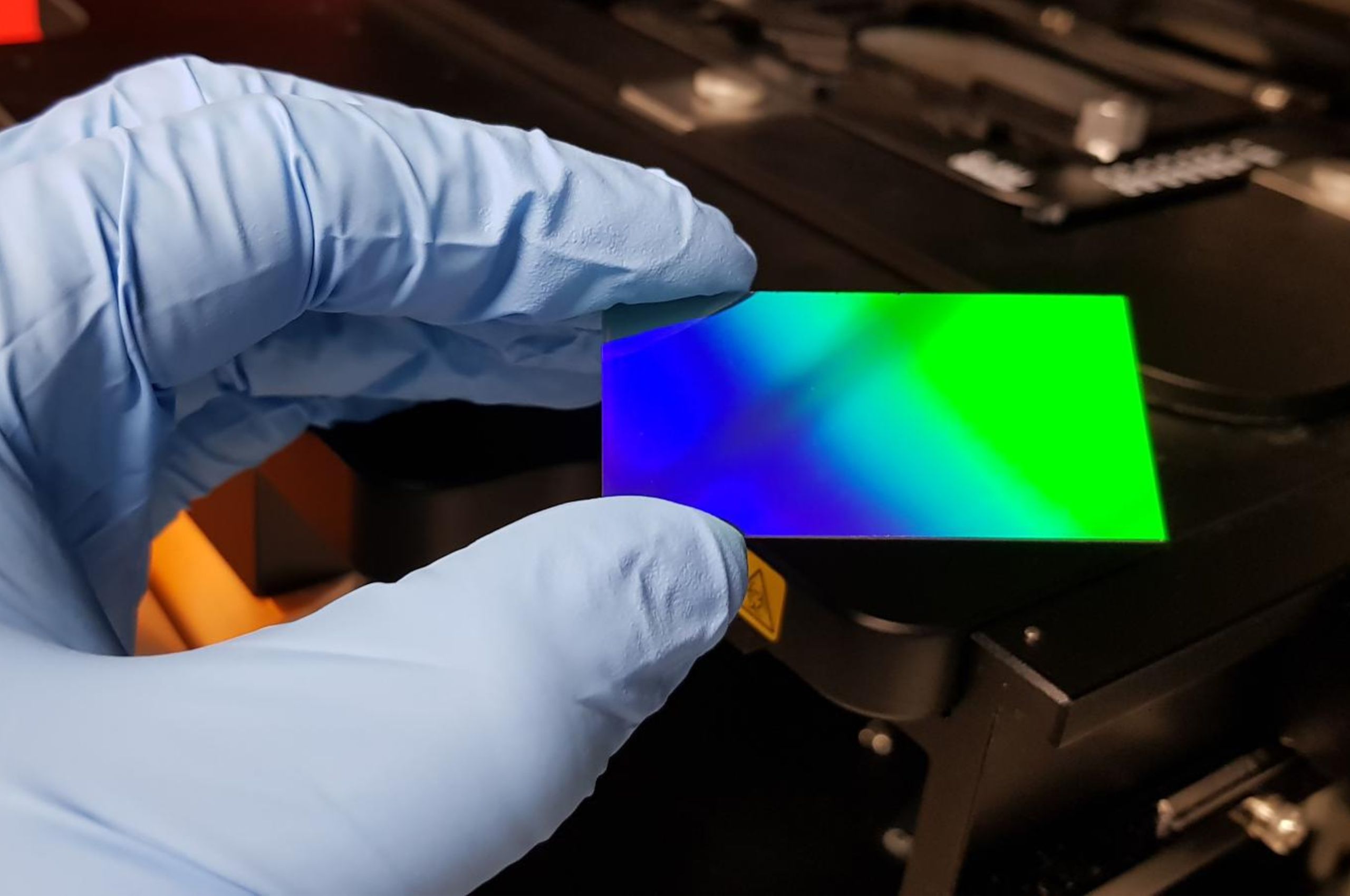AlleSense: Revolutionising cancer detection through light

Research and commercialisation aren’t mutually exclusive
Partnership at a glance
- Novel nanofabricated technology invented by a team from La Trobe Institute for Molecular Science (LIMS) can turn a microscope slide into a mini chemistry lab, enabling rapid and accurate detection of abnormal cells like cancer
- Medtech start-up AlleSense was born in December 2023 to commercialise the NanoMslide and is the first spin-out company resulting from La Trobe research
- While their discovery - called the NanoMslide - could revolutionise medical imaging, its inventors knew the journey ahead would be long and that turning the technology into a successful product would take time, training and resources
- La Trobe University has backed NanoMslide development at “every step of this journey” through Strategic Innovation Fund support and La Trobe Accelerator Program (LTAP) training.
Case study
When tissue placed on the newly invented NanoMslide instantly produced vivid colours, its inventors were stunned. Beyond being a validation of their whiteboard concept, the early results revealed that cancer cells could be distinguished from healthy tissue by their characteristic colour.
“Based on the reaction of our cancer collaborators we knew immediately that this technology could really make a difference, supporting a more accurate detection and visualisation of cancer cells,” says NanoMslide co-inventor, La Trobe University’s Professor Brian Abbey.
“Patient outcomes critically depend on accurately diagnosing cancer as early as possible.”
The technology developed by Professor Abbey, along with Senior Research Fellow Dr Eugeniu Balaur and researchers at the La Trobe Institute for Molecular Science (LIMS), applies a novel nanofabricated coating to the surface of a standard microscope slide. This innovation transforms the slide into a mini chemistry lab, enabling rapid and accurate detection of abnormal cells.
The path to success
While the NanoMslide represented a significant breakthrough in medical imaging research, Professor Abbey - an NHMRC Leadership Fellow - knew it was just the first step to making the technology available to the wider community. With up to 90 per cent of start-ups destined to fail, turning the NanoMslide into a successful commercial product would take time, training and resources.
Professor Abbey, who is currently part of the School of Computing, Engineering and Mathematical Sciences, says La Trobe helped make that happen right from the beginning, providing both financial support and guidance.
Now eight years on from their 2016 “eureka” moment, Professor Abbey and Dr Balaur are the La Trobe co-founders of AlleSense, a medtech start-up formed in December 2023 to commercialise the NanoMslide.
The first spin-out company resulting from La Trobe research, it has been supported through the university’s Strategic Innovation Fund.
“As researchers, we are driven by a passion for discovery, but companies need to be profitable and sustainable,” Professor Abbey says.
“From the start, the Commercialisation team helped us view our invention through the lens of a company rather than as just a research project.”
“We are deeply indebted to the Industry Engagement team and especially Natalia Alvarez-Lopez, Deputy Director of the Business Development and Commercialisation team, for their ongoing support, feedback, advice and connections.
“They have been with us every step of this journey.”
As researchers, we want our work to have real-world impact.
A passion for discovery
Originally from London in the UK, Professor Abbey joined La Trobe in 2011, his first teaching and research position, to pursue a career in optical physics: creating a medtech start-up was initially never part of his plan.
“I have to admit, early on, I did not really have a plan for my career,” he laughs.
“I’ve always followed where my curiosity has taken me, but I also have a strong desire for my research to have real-world impact.”
Professor Abbey had previously collaborated with industry as a graduate student, including with engineering firm Rolls Royce, but he lacked the skillset required to be an entrepreneur and so in 2017 he joined the second cohort of the La Trobe Accelerator Program (LTAP).
“Particularly if you are already at the prototype stage and can support your claims with data, investors will often be much more focused on the market opportunity than on the details of how the technology works,” he says.
“They can often ask very tough commercial questions which we are not normally trained to consider as researchers. The LTAP program was an incredibly useful first step into the commercial world and helped shape my first pitch to investors.”
Professor Abbey is hoping to see the NanoMslide in the market as a medical device within five years, having a significant positive impact for early cancer detection and revolutionising current approaches to tissue diagnosis.
The technology is protected by a strong portfolio of international patents and is progressing through stringent validation and regulatory processes.
Meanwhile, the collaboration with La Trobe continues, with AlleSense currently in discussions around potentially establishing a manufacturing base in the University’s Research and Innovation Precinct, providing wider opportunities for staff and students.
“Research and commercialisation aren’t mutually exclusive,” Professor Abbey says.
“You can publish quality papers and pursue commercial goals. Many of our current students are getting the best of both worlds.”
For more information, visit: AlleSense – Innovative imaging solutions
La Trobe Industry is dedicated to working with researchers and industry to translate projects into new technology, solve bottom-line challenges and create growth through discovery.
To learn more about collaborative research and commercialisation partnerships, contact the Commercial Research Services team.